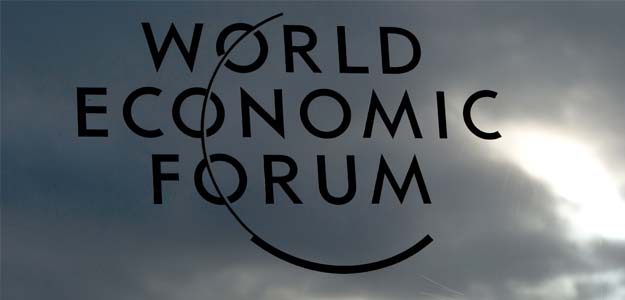

- Home/
- Top Stories/
- Don't believe India's fiscal problem is critical, says Martin Wolf
Don't believe India's fiscal problem is critical, says Martin Wolf

Martin Wolf, chief economics commentator at the Financial Times, spoke to NDTV's Namrata Brar on the sidelines of the annual WEF meeting in Davos, Switzerland. While addressing various issues that economies around the world face, Mr Wolf said he would like to see a significant fiscal cut in India, adding that India's fiscal problem is not very critical according to him.
Here's full transcript of the interview:
Namrata Brar: If you ever read news or follow the headlines this is name you can't ignore- Martin Wolf. He's chief economic commentator at the Financial Times. It's such a pleasure to have you here, Mr Wolf.
Martin Wolf: It's a great pleasure to be here with you again.
Namrata Brar: I hard you were in India some time back...
Martin Wolf: Yes, we thought there could be no better place for having Christmas and New Year holidays than India. Climate is much better, and I hadn't been there with my wife for nearly forty years, so it was a fantastic experience to see how it's changed.
Namrata Brar: Has it changed because last year you wrote an article (entitled) 'Crisis must not change India's course'? Many would disagree it has...
Martin Wolf: Yes, well in the short-run. Recent experience has been a bit disappointing, but if you have benefits of my work on India, on World Bank in 70s and haven't been there so often outside Delhi and Mumbai, just going out into the country a bit more, looking into the transformation of last four decades is staggering. It's not quite like china, which is unbelievable, but you can see really changed India in many many different ways... Obviously, a vast group of middle class, much more prosperous people, families out together... One of the things that stuck me the most, in fact, as I was there as a tourist, I wasn't working, is that nearly the tourist in India now, are Indians. And that wasn't true 3 or 4 decades ago. It's one of my theories- almost the first thing people do when they have some disposable income, they become tourists, they want to go and see things and this is one index of transformation which I thought was very interesting.
Namrata Brar: There is huge domestic growth story, which is certainly...
Martin Wolf: Yes, it is the core of what's happening in India, the slow in the short run, it could do better. Policies begin disappointing. Of course, it has. We know that but I have always believed in the potential of India ever since I first went there and continue to believe in it...
Namrata Brar: A lot of Indian corporates blame foreign media for Indian negative perception. They don't blame the government, don't blame the policy, don't blame the lack of reforms (but the foreign media)...
Martin Wolf: Well I think the roll of media is to be blamed for everything that goes wrong. All governments in the world without exception, when they aren't popular, (they) blame the media and it's easier to blame the foreign media because they are foreign and they are media but, of course, the foreign media is only picking up what the domestic media are saying and the people they speak to in India and it's been very clear, I had been speaking to a lot of Indian businessmen for decades (and) it's been clear that the Indian businessmen have been disappointed with the government. They constantly say politics is their constant problem, (which) clearly is. The pace of reforms is very disappointing under the current government. I find it surprising because the people in it are very able, all these corruption scandals... I think the foreign media is merely picking up what Indians are saying to one another.
Namrata Brar: And then again sitting in Davos what are you hearing about India's relevance because it seems to have diminished over the last couple of years?
Martin Wolf: Yes, I think that's for two reasons- first, there is a sense India has slowly lost its way a little. There was a time two years ago when people really did take seriously the idea that India was going to surpass China's growth rate, I think that confidence is gone. It's sad but it's gone because of all the stories we are reading. In addition, of course, there was simply an incredible powerful indigence present... I have not done the computations but my impression is that it substantially diminished over the last couple of years. So for both of these reasons the Indian presence is diminished, which does not mean in any way that people have lost interest, lost faith in the country and its longer-term potential. Western businessmen are profoundly interested in the potential of India. I noticed, Mr Cameron yesterday cited the extraordinary success of Tata with Jaguar, which we appreciate, so there are a lot of good stories about India. But I think, perhaps the excessive confidence, excessive optimism about India has gone, (which is) probably a good thing. I think the mood about India tends to shift in India than outside, so we have a bullish phase and perhaps the more gloomy is overdone. In a year or two it will be more balanced.
Namrata Brar: Let's move to your sense in terms of world and here at Davos, I notice a piece that you wrote is under a lot of debate, which says that America does not have deficit as its biggest problem... And that's controversial...
Martin Wolf: There's no point of writing a column if it's not controversial. I think the US has a long term fiscal problem, there is no doubt. There I was talking about the situation, now it has a long term fiscal problem, which is largely due to fiscal commitments directly related to the house spending, which has to be brought under control. Everybody agrees that must be done but that's not tomorrow's problem, it's the problem of 2020 and 2030. And it can be dealt with, whether it will or not I don't know. In the short-run they have already taken a lot of fiscal action, which will slow the rate of growth, rate of debt increase...dramatically, it does not take very much to stabilise the debt level. And the current debt level, in my view, of noontide state is completely manageable as we can see in the debt market and the prospects I think are that the US economy will actually surprise us on the upside in the next few years and we will see the revenue coming back. We might be surprised by how much the American deficit diminishes. Finally, the current deficit, consequently a large part, not entirely of the huge crisis they faced and, of course, unfounded tax cut under Mr Bush and this crises is going to be over... So I think the really big issues in America are long term growth, in fracture spending, improving the fiscal system and creating a more efficient long term program...
Namrata Brar: But are you saying deficits across the world are not a problem? Because it's happening everywhere. Where sovereign govt. are bailing out the private financial sector all across the world and now there is a situation and I know you have explained it in great details, you have done the math, you said private surpluses equal the government deficit, but isn't it kicking the can down the road? Are we setting ourselves for a huge, much bigger than the 2008 financial crises, a sovereign debt crisis?
Martin Wolf: As with all things in economics, it actually depends. There are countries which are in huge fiscal crises which have to be cut dramatically... There is no doubt about Greece, there is clearly (a crisis of) that kind in Spain, I think the fiscal defecate of Italy is more and there are relatively other very big problems. I would like to see a big fiscal cut in India but I certainly, by the way, have written this for years- I certainly don't believe India's fiscal problem is critical, in the sense that it's going to cause a crisis. I believe it's a different problem, namely the Indian government is crowding out private resources and spending wastefully- which is an important issue- but it's not a fiscal crisis. Japan has a debt ratio of 240 per cent GDP. They're going to increase their fiscal deficit further and I think they are right. I know it's controversial but I think it's what they have to do. They have to get the economy moving again. Fiscal problems are real and in some countries they are really important. By the way, Britain is a country where we are tightening it quickly but they are not the only economic problems that countries face. They have to be seen in medium to long term, they have to be seen in the context of crises on one hand and potential long term growth on the other hand. But I do think we have very seriously execrated fiscal problem as against other problem the world faces. I am much more concerned about the climate change. For instance, 50 years from now that's likely to be a much bigger concern to our children and grandchildren...
Namrata Brar: That's also a subject here in Davos. You have things about euro zone recovery. The fact is there are huge amounts of gaps between the rich and the poor, wealth accumulation and tax avoidance, so many divergent themes... If I ask Martin Wolf to give me a column right now on NDTV Profit, your top themes in Davos would be?
Martin Wolf: I think my big things would be negative ones. What I mean by that really is for six years since the beginning of 2008 - actually in six Davos meetings - we had been dominated by crises. What's going to follow the next week is the first one since 2007 when nobody expects an eminent financial crises anywhere, they may be wrong... The financial crises in the US seems to be completely over. There are long term consequences and now the sovereign crisis in Europe seems to be over because of the action, above all, of the central bank. For the first time we move from the crises phase, the panic phase, that really seems to be the background theme. Then they start looking at this issues, what is the prospect for longer term growth, how will the developed countries grow out of their problems, climate change is back because we are not partly fixed with the short term issues, the form of the EU is now on the agenda, we can start looking again really for the first time at these various long term issues, which were always there, because everybody is breathing a sigh of relief...
Namrata Brar: I like that sound of relief. Thank you Mr Wolf.












